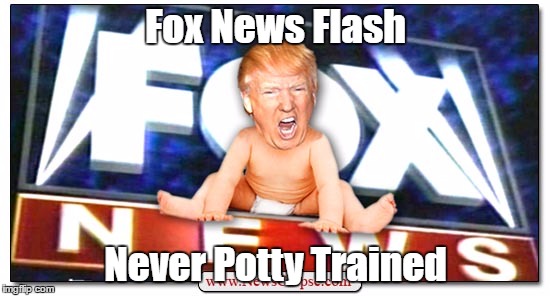Trump: Mexican American Judge Has an 'Absolute Conflict'
The Republican candidate’s insistence that Gonzalo Curiel cannot preside impartially simply because of his ethnic heritage flies in the face of established precedent.
Was Donald Trump’s suggestion last week that Judge Gonzalo Curiel, an American of Mexican descent, could not fairly preside over a lawsuit about so-called Trump University simply an off-the-cuff remark? If so, Trump seems to have decided to go with it. The Wall Street Journal reports:In an interview, Mr. Trump said U.S. District Judge Gonzalo Curiel had “an absolute conflict” in presiding over the litigation given that he was “of Mexican heritage” and a member of a Latino lawyers’ association. Mr. Trump said the background of the judge, who was born in Indiana to Mexican immigrants, was relevant because of his campaign stance against illegal immigration and his pledge to seal the southern U.S. border. “I’m building a wall. It’s an inherent conflict of interest,” Mr. Trump said.Perhaps one reason Trump lashed out at Curiel once more was the release of documents from the case on Tuesday, which painted Trump University in an unflattering light.
Trump’s statement is troubling for a variety of reasons. Curiel was born in Indiana to parents who had immigrated from Mexico, and Trump has referred to Mexican immigrants as “rapists” and criminals. But the case at hand involves an allegedly fraudulent series of real-estate seminars Trump set up—in other words, it has nothing to do with ethnicity whatsoever. He has discovered that by grossly insulting a group to which a judge (sort of) belongs, he can then argue that the judge is tainted. As my colleague Peter Beinart, among other observers, has pointed out, Trump’s demand that an unblemished judge step down from the case amounts to an attack on the independence of the American judiciary.
Such attacks are not unprecedented in U.S. history, but those attacks have tended be viewed as shameful and scurrilous in retrospect—and sometimes at the time. The notion that duly appointed or elected judges cannot rule fairly on cases involving groups to which they belong has been soundly rejected. In 2010, defendants arguing for the constitutionality of California’s Proposition 8, which banned same-sex marriage, attempted to disqualify Judge Vaughn Walker because he was gay. One problem with that argument was that it implied that straight judges would also be hopelessly biased. In 1994, Judge Michael Mukasey—who would later serve as attorney general under George W. Bush—denied a motion for him to recuse himself from a World Trade Center bombing trial, on the grounds that he was Jewish and a Zionist. He rejected the idea that the defendant’s bigotry made it necessary for him to withdraw from the case. “That someone with an imagination or a motive might hallucinate relevance is not the standard, and therefore cannot provide the basis for decision,” he wrote.
The pioneering black jurist A. Leon Higginbotham made that point eloquently in a landmark ruling in 1974:
It would be a tragic day for the nation and the judiciary if a myopic vision of the judge's role should prevail, a vision that required judges to refrain from participating in their churches, in their non-political community affairs, in their universities. So long as Jewish judges preside over matters where Jewish and Gentile litigants disagree; so long as Protestant judges preside over matters were Protestant and Catholic litigants disagree; so long as white judges preside over matters where white and black litigants disagree, I will preside over matters where black and white litigants disagree.Trump’s claim is even less relevant, though, as ethnicity plays no apparent role in the Trump U. case. His argument also sits in uncomfortable contradiction to his prior claims that “the Latinos love me.”
Setting aside the race-baiting claim in this case, Trump’s comment points to a disturbing pattern of behavior. Trump has either proven incapable of disentangling his business concerns from his political campaign, or else is guilty of intentionally intertwining the two. Early in the Trump campaign, cynics and comedians joked that his presidential run was simply a way to further his business concerns. As the campaign progresses, that joke has lost its comedic edge. In his assault on Curiel, Trump has combined a business interest, the class-action lawsuit against Trump University, with a political interest, the wall he claims he will build along the U.S. border with Mexico.
This isn’t the only example of such a conflation; in fact, it’s not even the only example of such a conflation this week. Trump recently revealed that the PGA was moving the World Golf Championship from the Trump Doral course in Florida to—in what might seem like a pointed choice—Mexico. Trump suggested the blow to his golf course could be rectified by his election as the nation’s leader.
“They moved the World Golf Championships from Miami to Mexico City. Can you believe it? Can you believe it?” Trump said in Sacramento. “Not good. But that's OK. Folks, it's all going to be settled. You vote for Donald Trump as president, if I become your president, this stuff is all going to stop.” (Elsewhere he sniped, “I hope they have kidnapping insurance.”)
Trump also suggested reopening the “university,” a move that would be challenging because before the institution’s closure he was forced to rename it, as he had no license to operate a school in New York:
Trump seems determined to frustrate Republican Party leaders, who are fitfully working to coalesce around Trump and accommodate themselves. Earlier on Thursday, House Speaker Paul Ryan—who had been a notable holdout—announced he would endorse Trump. The timing of the latest broadside at Curiel does Ryan no favors. Senate Majority Leader Mitch McConnell, who has also tepidly backed Trump, said on CNN just Thursday afternoon that he was worried Trump could alienate Hispanic voters from the Republican Party, just as Barry Goldwater alienated African Americans from the GOP in 1964. It took just a few hours for Trump to demonstrate exactly what McConnell meant.


No comments:
Post a Comment